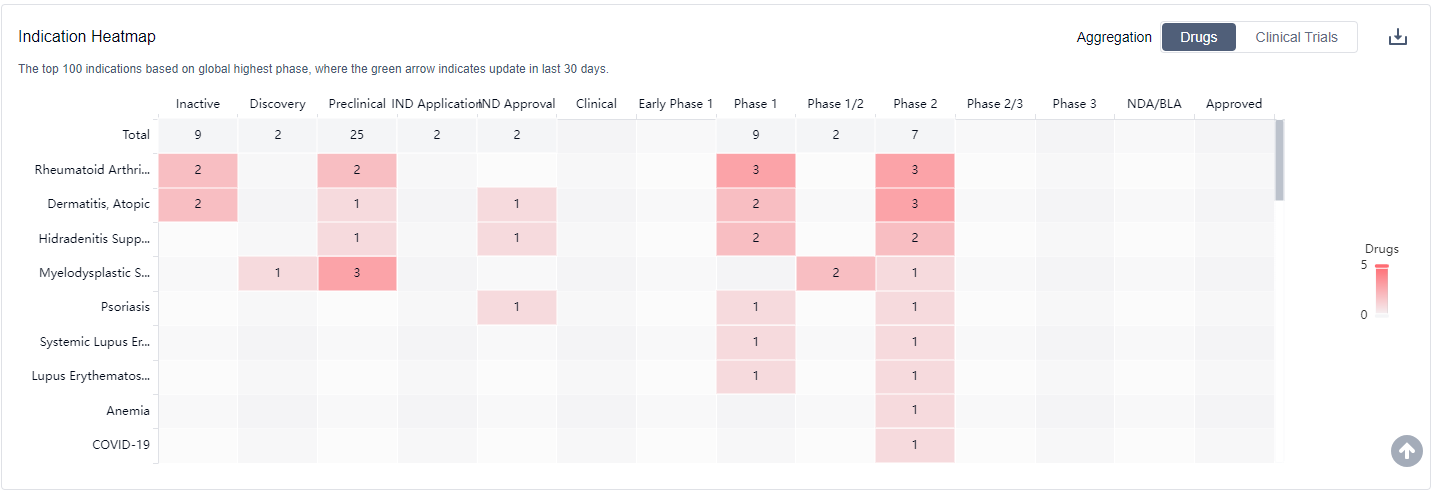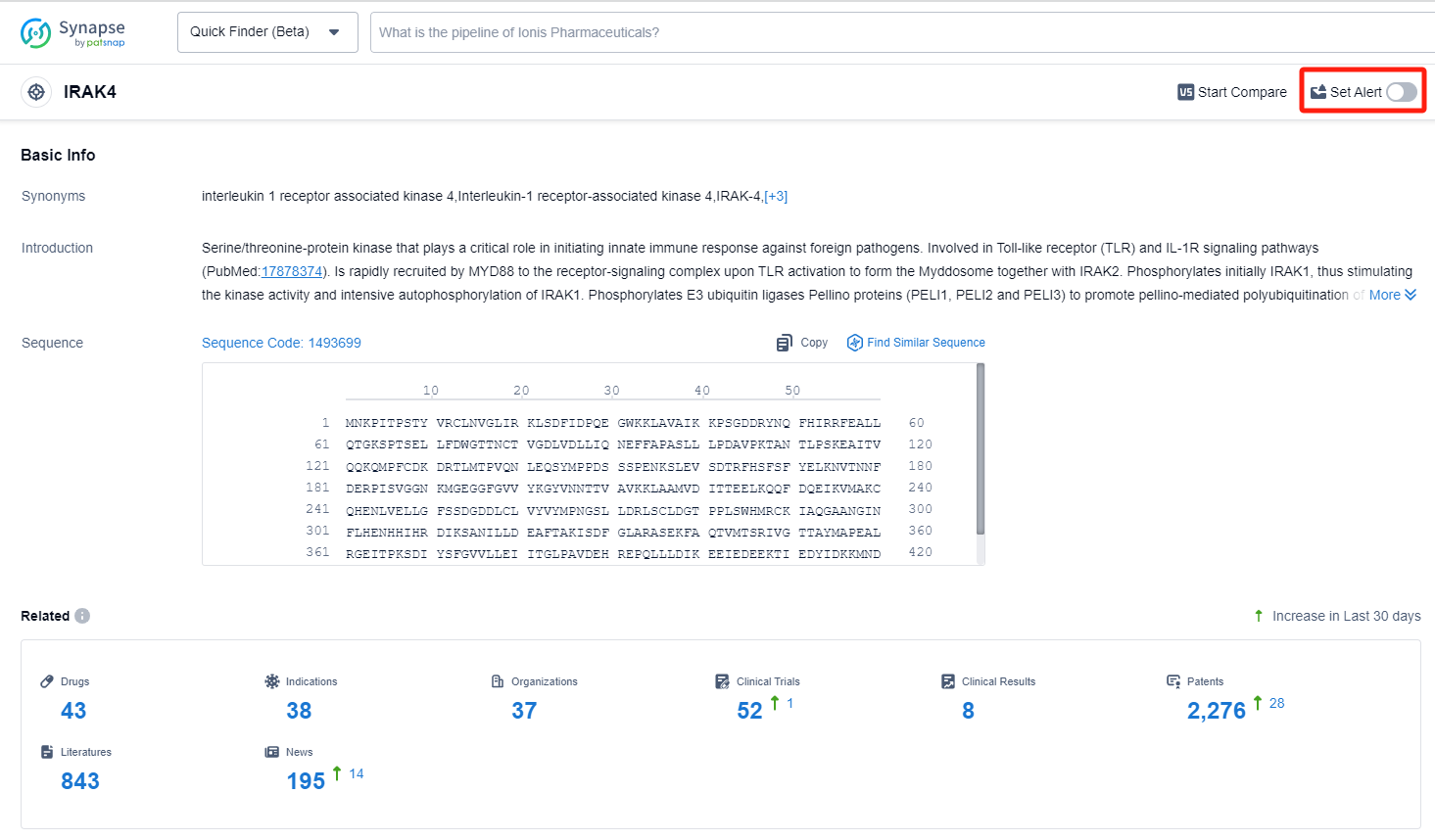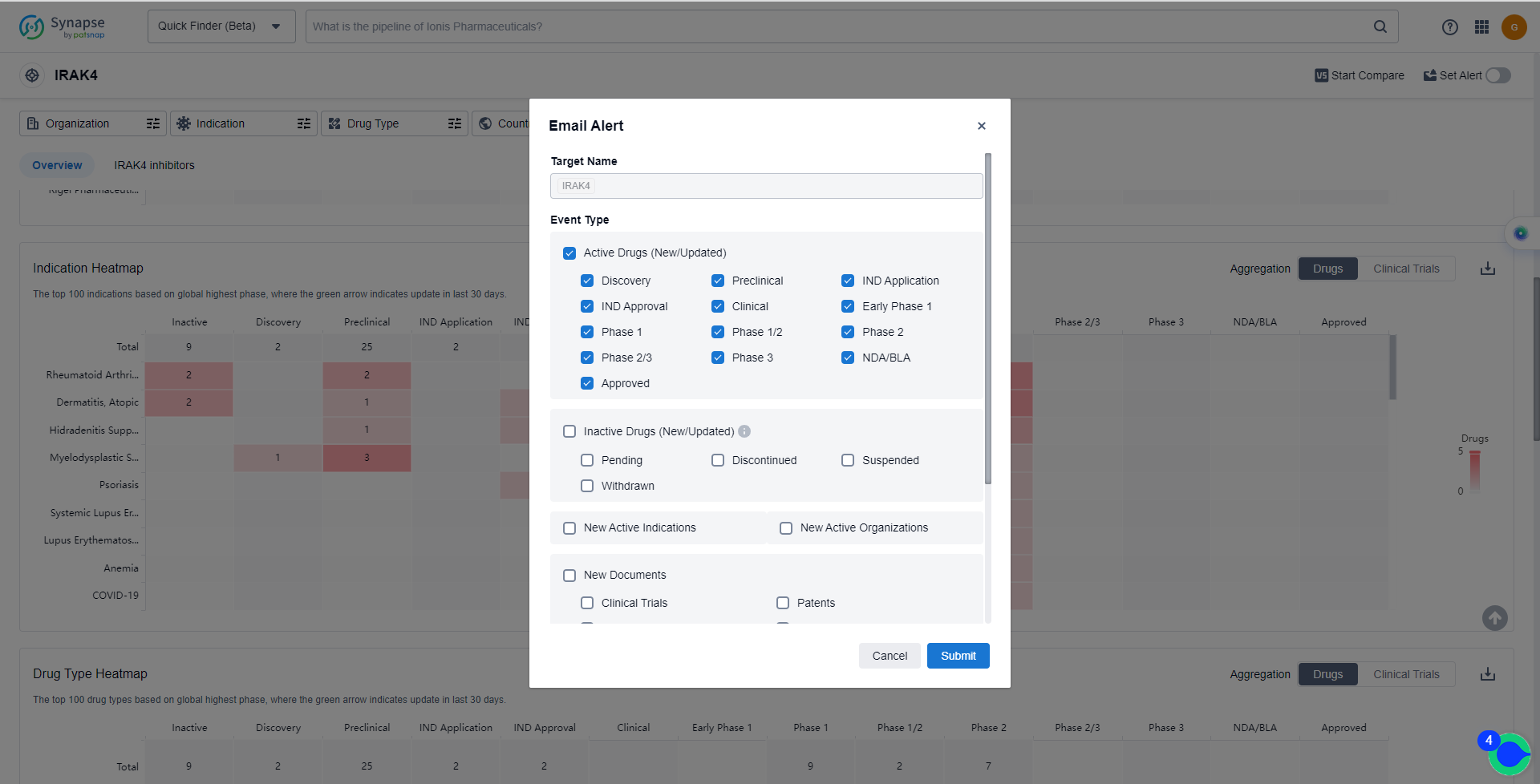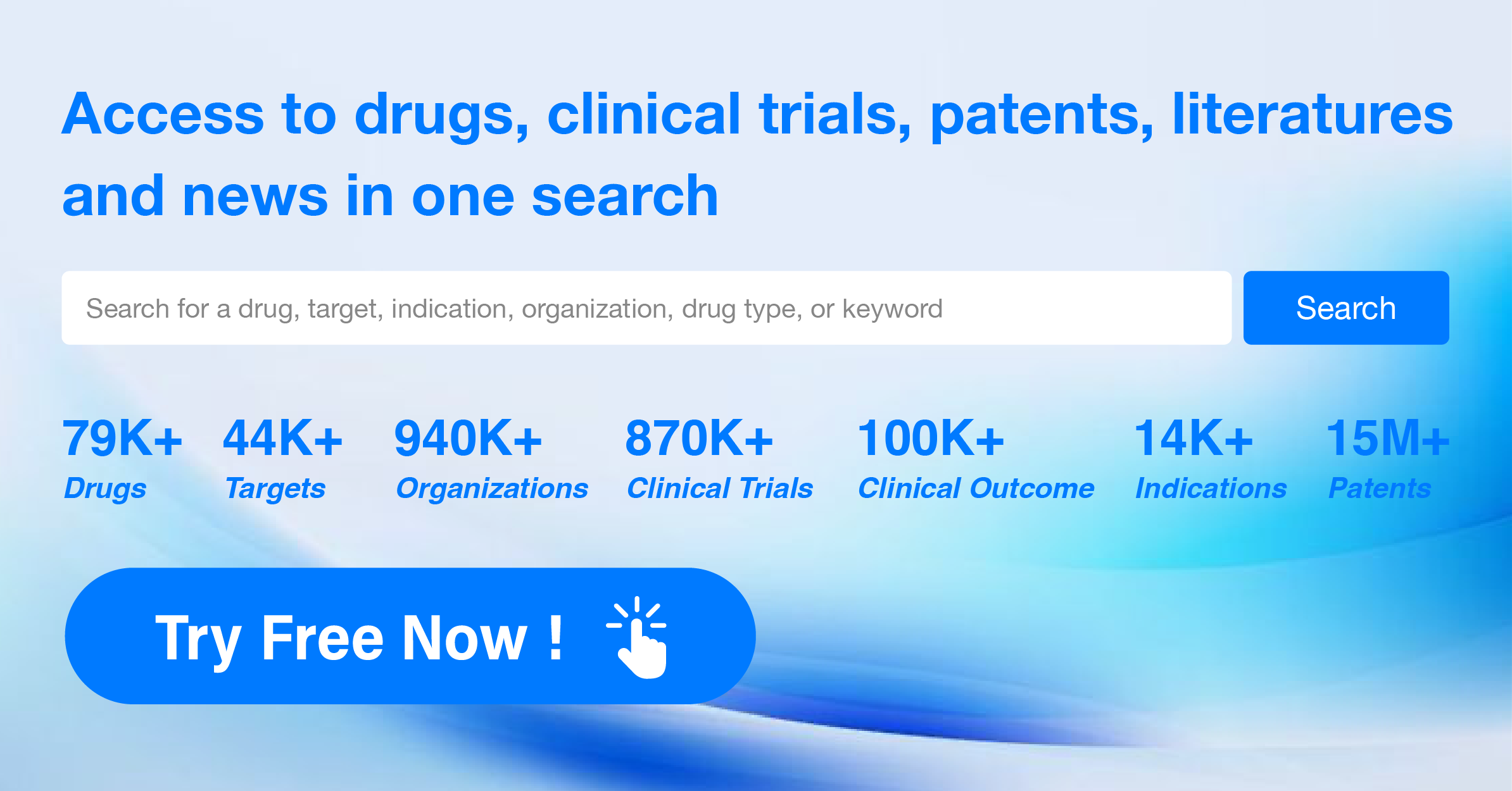What are IRAK4 inhibitors and how do you quickly get the latest development progress?
IRAK4, or Interleukin-1 receptor-associated kinase 4, plays a crucial role in the human body's immune response. It is an enzyme that is involved in the signaling pathway of the innate immune system, specifically in the Toll-like receptor (TLR) and interleukin-1 receptor (IL-1R) pathways. IRAK4 acts as a key mediator in the activation of various immune cells, such as macrophages and dendritic cells, by facilitating the production of pro-inflammatory cytokines. Dysregulation or malfunction of IRAK4 can lead to immune disorders and inflammatory diseases. Therefore, understanding the role of IRAK4 is essential for the development of targeted therapies in the pharmaceutical industry.
The development of IRAK4 inhibitors began with the identification of potential inhibitors that work by blocking its tyrosine gated ATP binding site. However, the early clinical effect of IRAK4 monotherapy was not ideal, leading to the exploration of combination therapies. For instance, IRAK4 inhibitors such as CA4948 (emavusertib) are being assessed in preclinical studies and clinical trials for hematologic malignancies, including lymphoma, myelodysplastic syndrome (MDS), and acute myeloid leukemia (AML).
Looking ahead, the future of IRAK4 inhibitors is promising but challenging. Recent studies suggest that the limited responses to IRAK4 inhibitors in MDS and AML clinical trials are due to functional complementation and compensation by its paralog, IRAK1. This implies that dual IRAK1/4 inhibition might provide a more effective therapeutic approach for hematologic malignancies. Furthermore, the emergence of small-molecule ‘degraders’ that bind both the kinase and E3 ubiquitin ligases is set to take on traditional kinase inhibitors. These advances are expected to galvanize interest in small molecule targeted degraders and advance the field’s understanding of IRAK4.
The analysis of target IRAK4 reveals a competitive landscape with multiple companies actively involved in the development of drugs. Kymera Therapeutics, Inc., Bayer AG, and Gilead Sciences, Inc. are among the companies with the highest stage of development. The indications for drugs targeting IRAK4 cover a wide range of diseases, including Rheumatoid Arthritis, Dermatitis, Atopic, Hidradenitis Suppurativa, and various types of cancers. Small molecule drugs and PROTACs are the most rapidly progressing drug types, indicating intense competition in the market. The European Union, United States, and China are the leading countries/locations in the development of drugs targeting IRAK4, with China showing significant progress. Overall, the analysis suggests a promising future for the development of drugs targeting IRAK4, with a focus on addressing various diseases and a growing presence in different countries.
How do they work?
IRAK4 inhibitors are a type of drug that target and inhibit the activity of the interleukin-1 receptor-associated kinase 4 (IRAK4) enzyme. From a biomedical perspective, IRAK4 is a protein kinase that plays a crucial role in the signaling pathway of the innate immune system. It is involved in the activation of various cellular responses to infection and inflammation.
By inhibiting IRAK4, these inhibitors can modulate the immune response and potentially be used in the treatment of certain autoimmune diseases, inflammatory disorders, and cancers. IRAK4 inhibitors work by blocking the kinase activity of IRAK4, thereby disrupting downstream signaling pathways and reducing the production of pro-inflammatory cytokines.
These inhibitors are being investigated as a potential therapeutic approach to target diseases where excessive or dysregulated immune responses contribute to pathology. However, it is important to note that the development and use of IRAK4 inhibitors are still in the early stages, and further research is needed to determine their safety and effectiveness in various clinical applications.
List of IRAK4 Inhibitors
The currently marketed IRAK4 inhibitors include:
For more information, please click on the image below.
What are IRAK4 inhibitors used for?
IRAK4 inhibitors are cover a wide range of diseases, including Rheumatoid Arthritis, Dermatitis, Atopic, Hidradenitis Suppurativa, and various types of cancers. For more information, please click on the image below to log in and search.
How to obtain the latest development progress of IRAK4 inhibitors?
In the Synapse database, you can keep abreast of the latest research and development advances of IRAK4 inhibitors anywhere and anytime, daily or weekly, through the "Set Alert" function. Click on the image below to embark on a brand new journey of drug discovery!








